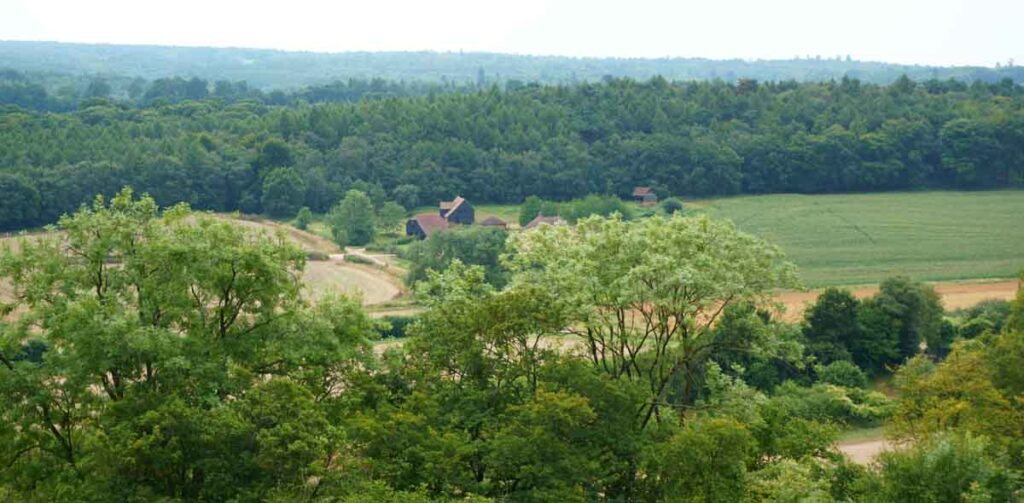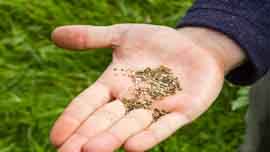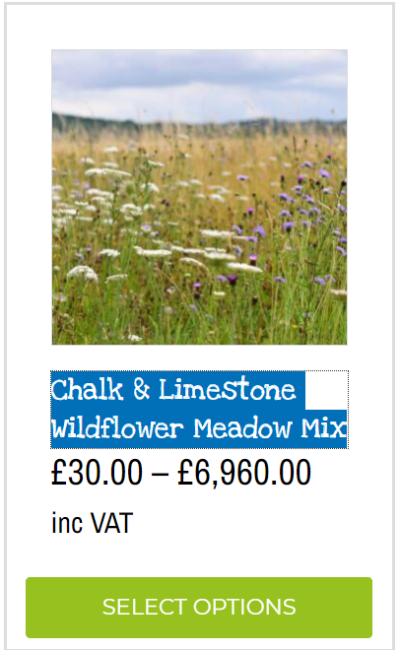Seeds of Change: Revitalising the UK’s Chalk Meadows with Wildahome’s Expertise
Creating or restoring chalk meadows in the UK is a journey back to a rare and stunningly beautiful habitat, teeming with a diversity of wildflowers and buzzing with the activity of pollinators. Wildahome, a leader in ecological restoration, plays a crucial role in this process, offering invaluable resources, including locally sourced and harvested seeds and innovative wildflower mats, to bring these vibrant ecosystems back to life.
Introduction to Chalk Meadows
Chalk meadows, a unique feature of the UK landscape, are characterised by their rich biodiversity. These habitats thrive on alkaline, nutrient-poor soils derived from chalk or limestone, supporting a distinctive plant species mix. Once a common sight, these meadows have diminished due to modern agricultural practices and urban expansion, making their restoration a conservation priority.
Diving Into Diversity: The Wildflowers of Chalk Meadows
The flora of chalk meadows includes a range of wildflower species that have adapted to the unique conditions of these habitats. Key species might include the orchid-rich orchards, the striking blue of the chalkhill blue butterfly’s larval food plant, horseshoe vetch, and the delicate blooms of cowslip and early purple orchid. These species add to the meadows’ aesthetic appeal and provide essential nectar sources for pollinators.
Seeds of Restoration: Sowing Wildflower Seeds for Chalk Meadows
Restoration efforts begin with the careful selection of appropriate wildflower seeds. Wildahome can advise advise on the best seed mixes that mimic the natural species composition of historic chalk meadows. The organisation provides guidelines for sowing these seeds, emphasising the importance of timing, soil preparation, and ongoing management to ensure successful meadow establishment.
Geographical Spread: Where to Find Chalk Meadows in the UK
Chalk meadows are found in several locations across the UK, with notable examples in the North and South Downs of the South East, the Cotswolds, and the Yorkshire Wolds. These areas represent opportunities for restoration projects that can link existing habitats, create corridors for wildlife, and increase ecological resilience.

Local Heroes: The Importance of Locally Sourced and Harvested Seeds

At Wildahome, we know the importance of using locally sourced and harvested seeds in restoration projects. From projects we have undertaken on our farms in Devon and Wales.
This approach ensures that the restored meadows are genetically appropriate for the region, supporting local biodiversity and reducing the risk of introducing non-native species. The organisation works closely with local farmers and conservation groups to source these seeds, contributing to community-based conservation efforts.
Innovations in Restoration: The Role of Wildflower Mats in Meadow Creation

In addition to traditional seeding methods, Wildahome offers wildflower seed mulch mats as an innovative solution for creating chalk meadows. These seed mats are easy to lay and provide an instant diversity boost to restoration sites. They are instrumental in urban or recreational areas where quick establishment is desired or in more challenging areas, like steep banks and where birds may cause a problem.
Fostering Biodiversity: The Ecological Impact of Restoring Chalk Soil Meadows
The restoration of chalk meadows has far-reaching ecological benefits. By increasing plant species diversity, these projects support a more comprehensive range of insects, birds, and other wildlife. The presence of pollinators, in particular, has been shown to enhance the productivity of nearby agricultural lands, demonstrating the interconnectedness of conservation efforts and human well-being.
Getting Involved: How You Can Help Restore Chalk Meadows
At Wildahome, we encourage community involvement in chalk meadow restoration. Through volunteering, landowners and enthusiasts can contribute to the sowing of seeds, the laying of wildflower mats, and the ongoing management of these habitats. We are able to provide advice and support for those looking to start their projects, fostering a network of conservationists dedicated to meadow restoration.
Conclusion: The Future of Chalk Meadows in the UK
The restoration of chalk meadows represents a hopeful narrative in the face of biodiversity loss. With the support of organisations like Wildahome and the involvement of local communities, these habitats can be brought back from the brink of extinction. The future of chalk meadows in the UK depends on our collective efforts to preserve and restore these vital ecosystems, ensuring they continue to thrive for generations.
Wildahome is at the forefront of efforts to revive the UK’s chalk meadows through carefully selecting seeds, innovative restoration techniques, and community engagement. This work not only restores a piece of the country’s natural heritage but also supports biodiversity, pollinators, and the broader ecosystem services upon which all life depends.
Buy Now



